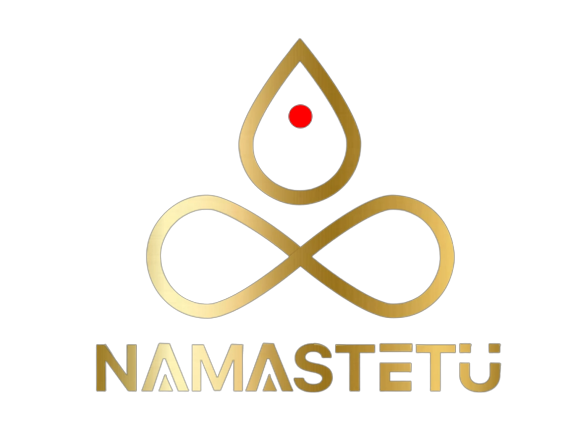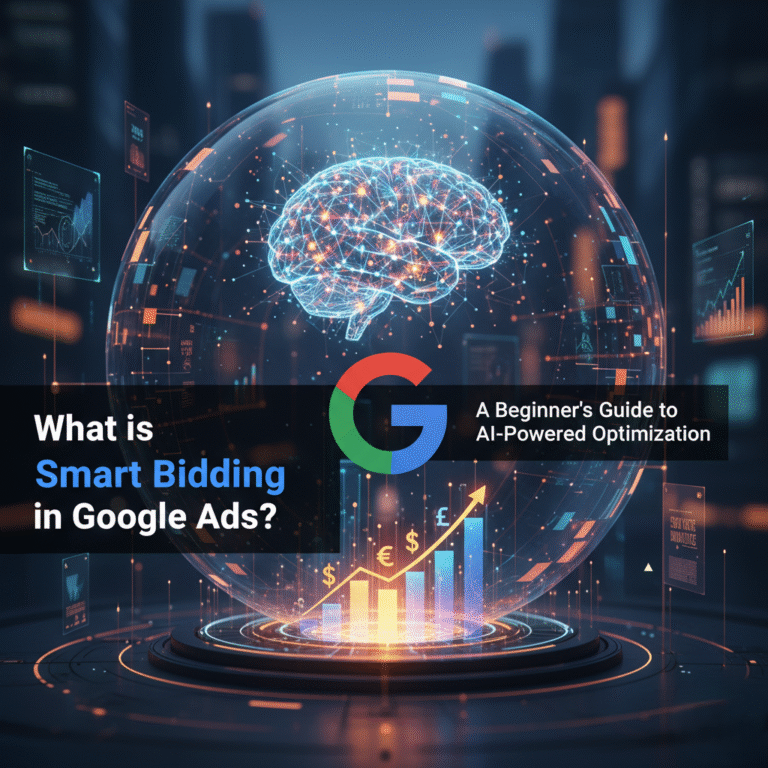Smart Bidding is Google’s AI-powered bidding strategy that automatically adjusts your bids in real-time using machine learning. It analyzes hundreds of signals like device, location, time, and user behavior to optimize each auction. Unlike manual bidding, Smart Bidding works 24/7 without your intervention, maximizing conversions while minimizing costs. NAMASTETU TECHNOLOGIES, a leading digital marketing agency Indore, helps businesses implement Smart Bidding to boost Google Ads ROI and achieve better campaign performance efficiently.
What’s the Difference Between Smart Bidding and Traditional Bidding?
Traditional bidding requires you to manually set keyword bids and adjust them based on performance data. This approach is time-consuming and often less effective than machine learning-driven strategies.
Key Differences:
- Manual Bidding: You control all bid adjustments; requires constant monitoring
- Smart Bidding: AI adjusts bids automatically; uses real-time signals for optimization
- Efficiency: Manual bidding takes hours; Smart Bidding works instantaneously
- Accuracy: Manual adjustments are limited; Smart Bidding analyzes millions of data points
Smart Bidding offers superior performance for most campaigns, making it the preferred choice for digital marketing agencies near me who want to deliver results to their clients.
What is Smart Bidding in Google Ads? A Beginner’s Guide to AI-Powered Optimization
Smart Bidding strategies fall into several categories, each designed for different business goals. Whether you’re an e-commerce store or a service provider, there’s a Smart Bidding strategy for your needs.
The main Smart Bidding strategies include Target CPA (Cost Per Acquisition), Target ROAS (Return on Ad Spend), Maximize Conversions, and Maximize Conversion Value. Each uses AI-powered bidding optimization to achieve specific business objectives while maintaining budget control.
How to Set Up Smart Bidding for Your Google Ads Campaign: Step-by-Step Implementation
Setting up Smart Bidding correctly is essential for success. Here’s how NAMASTETU TECHNOLOGIES recommends implementing it:
Ensure Proper Conversion Tracking Before enabling Smart Bidding, verify that conversion tracking is correctly implemented on your website. You need accurate data for the AI to learn effectively.
Choose Your Bidding Strategy Select between Target CPA, Target ROAS, Maximize Conversions, or Maximize Conversion Value based on your business goals.
Set Your Target Input your desired cost per acquisition or return on ad spend. Be realistic based on historical data.
Enable Smart Bidding at Campaign Level Go to your campaign settings, navigate to bidding, and select your preferred Smart Bidding strategy. This applies the AI-powered bidding optimization across all keywords in that campaign.
What’s the Difference Between Maximize Conversions and Target CPA?
Both are Smart Bidding strategies, but they serve different purposes in your digital marketing agency strategy.
Maximize Conversions aims to get as many conversions as possible within your daily budget. It doesn’t target a specific cost, it simply tries to convert more people.
Target CPA sets a specific cost threshold. The algorithm aims to achieve conversions at or below your target cost per acquisition, even if it means fewer total conversions.
Choose Maximize Conversions if you want volume; choose Target CPA if you have a specific profitability goal.
How Much Data Do I Need Before Using Smart Bidding?
A common question from businesses considering AI-powered bidding optimization: Do I have enough data?
Recommended Minimums:
- 30 conversions in the last 30 days for learning
- Consistent conversion data to build AI models
- At least 15 conversions per week for optimal performance
If you’re just starting with Google Ads management agency in indore, consider using Maximize Conversions first to build conversion data, then switch to Target CPA once you have sufficient history. NAMASTETU TECHNOLOGIES helps businesses at every stage scale their campaigns effectively.
How Do I Know If Smart Bidding Is Actually Working?
Tracking performance is crucial. Here’s what to monitor:
Key Metrics:
- Conversion rate trends
- Cost per conversion changes
- Return on ad spend (ROAS)
- Click-through rate (CTR)
- Quality Score trends
Compare these metrics against your baseline (pre-Smart Bidding performance). You should see improvements within 2-4 weeks as the algorithm learns and optimizes your bids.
Is Smart Bidding Safe to Use on My High-Budget Campaigns?
Absolutely! Smart Bidding is designed for campaigns of all sizes. In fact, it’s especially valuable for high-budget campaigns where bid optimization can generate significant savings.
Safety Tips:
- Start with limited budgets to test the strategy
- Set daily budget limits to control spending
- Monitor performance closely during the learning phase
- Use automated rules as safeguards
- Partner with a digital marketing agency in Indore like NAMASTETU TECHNOLOGIES for expert guidance
How Long Does It Take to See Results from Smart Bidding?
Most campaigns see initial optimization within 7-14 days. However, full optimization typically takes 2-4 weeks as the AI algorithm learns from more data.
Patience is key during the learning phase. Avoid frequent bid adjustments or strategy changes during this period, as they disrupt the algorithm’s learning process.
What’s the Best Way to Monitor and Adjust Smart Bidding Campaigns?
Effective monitoring ensures your Smart Bidding strategy continues delivering results:
Weekly Reviews:
- Check conversion rates and CPA/ROAS performance
- Look for unexpected spending spikes
- Monitor impression share trends
Monthly Analysis:
- Analyze seasonal patterns affecting performance
- Adjust target CPA or ROAS based on profitability changes
- Review campaign structure for optimization opportunities
Avoid Over-Adjusting: Don’t change bids, budgets, or keywords too frequently. Let the algorithm stabilize before making significant changes.
How Often Should I Review and Update My Smart Bidding Strategy?
For optimal results, review your Smart Bidding strategy monthly. However, major adjustments should happen quarterly or when significant business changes occur (new products, seasonal shifts, budget changes).
Daily monitoring is recommended, but actual changes should be measured and strategic, not reactive to single-day performance fluctuations.
What’s the Difference Between Smart Bidding and Automated Rules?
Smart Bidding uses machine learning AI to automatically adjust bids in real-time across all auctions. It analyzes hundreds of signals and learns continuously.
Smart Bidding is more sophisticated and generally delivers better results for conversion-focused campaigns.
FAQ Section
Q: What’s the best Smart Bidding strategy for e-commerce?
For e-commerce, NAMASTETU TECHNOLOGIES recommends Target ROAS to maximize profit. If you focus on volume, try Maximize Conversion Value instead.
Q: Can I use Smart Bidding with broad match keywords?
Yes! In fact, broad match works exceptionally well with Smart Bidding. The algorithm handles variations and match types intelligently.
Q: How much does Smart Bidding cost?
Smart Bidding is free; it’s a feature included in Google Ads. You only pay for clicks and conversions.
Q: What if my campaign has zero conversions?
Start with Maximize Clicks to build initial data, then transition to Smart Bidding once you have conversion history.
Q: Is Smart Bidding available for all campaign types?
Smart Bidding is available for Search, Shopping, and App campaigns. Availability varies by campaign type.
Conclusion
Smart Bidding is transforming how businesses manage Google Ads campaigns. By leveraging AI-powered bidding optimization, you can achieve better results with less manual effort. Whether you’re just starting or looking to enhance your existing campaigns, Smart Bidding offers significant advantages.




